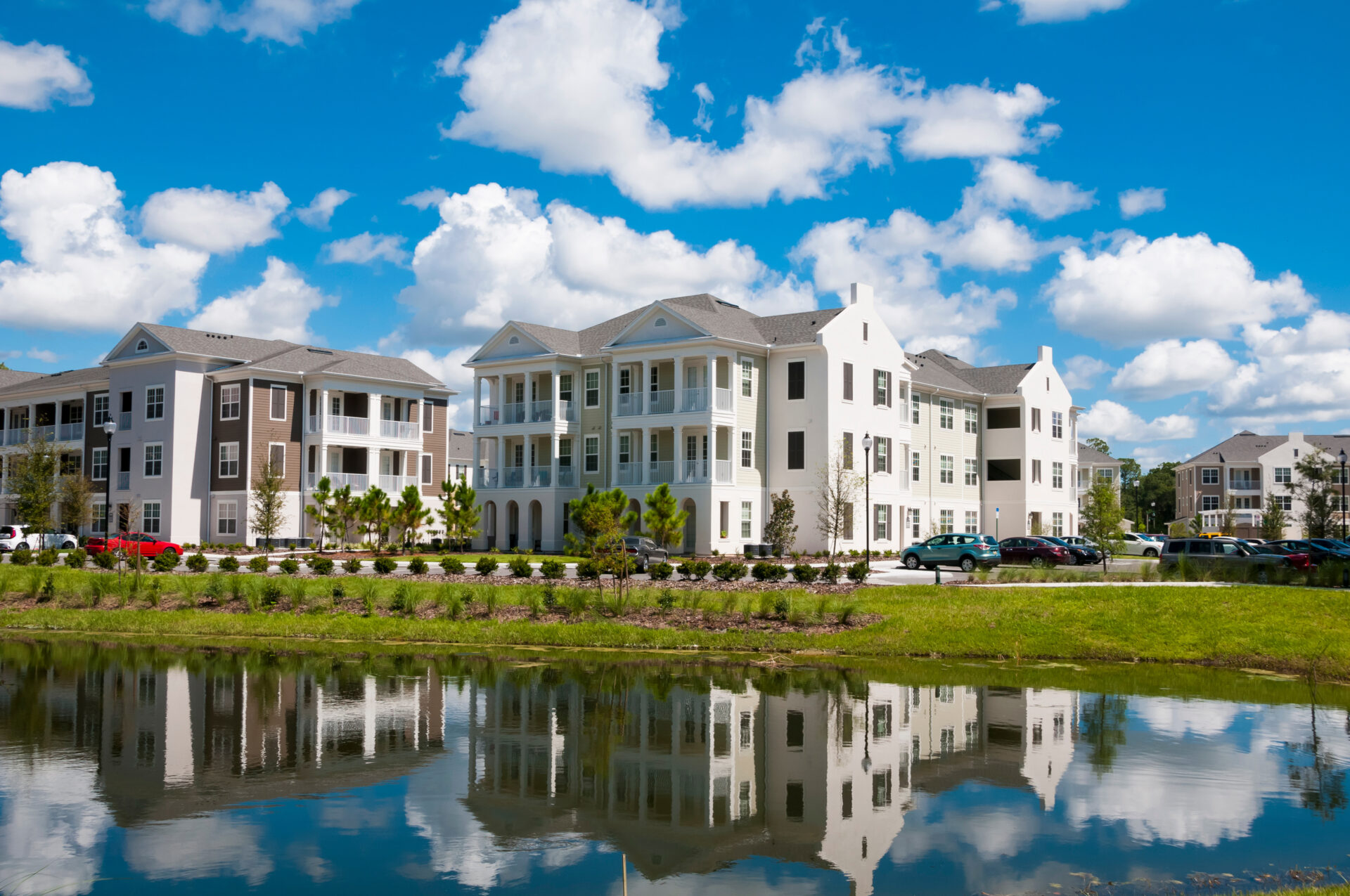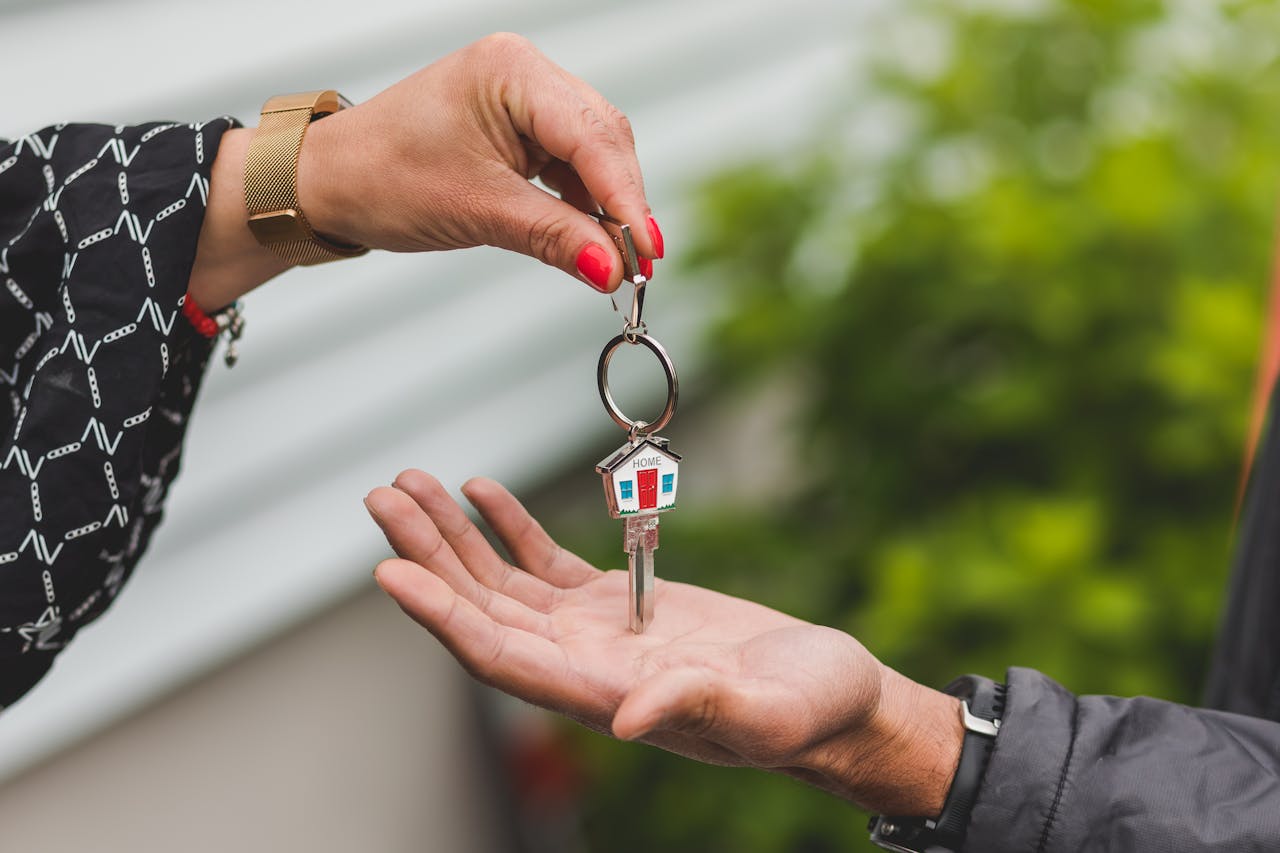How to Be a Successful Property Manager

Key Takeaways
- Fully grasp the scope of the role: A successful property manager handles marketing & leasing, maintenance coordination, financial oversight, resident relations, and compliance — understanding all these areas is what separates trusted professionals from average operators.
- Combine strong technical skills with the right mindset: Effective communication, organization, leadership, financial literacy, and adaptability are essential. Being proactive and calm under pressure makes a big difference.
- Know your market and use technology for efficiency: Staying on top of local rental trends, legal frameworks and leveraging digital tools (software, analytics, automation) streamlines operations and enhances both owner and resident experience.
- Prioritize relationships, ethics & continuous improvement: Transparent communication with owners, residents and vendors builds trust; strict compliance and ethical behavior safeguard reputation; and ongoing learning keeps you competitive as the industry evolves.
Property management is one of the most rewarding careers in real estate, but also one of the most demanding.
Between managing residents, overseeing maintenance, keeping financials in order, and staying compliant with housing laws, it takes a special mix of skill, patience, and strategy to truly succeed.
A successful property manager builds systems that run smoothly, lead with integrity, and balance the needs of owners, residents, and vendors.
The principles of success for managing rental properties remain the same and apply to all types of properties, including single-family homes, apartment complexes, and commercial spaces.
This guide by Balanced Asset Solutions walks through the habits, traits, and strategies that make top property managers stand out, and how you can apply them in your own career.
1. Understand What Property Management Really Involves
The first step toward success is knowing exactly what the role requires. Property management is not a one-dimensional job; it’s a blend of business operations, customer service, financial management, and risk control.
A great property manager oversees every aspect of the property’s performance, including:
- Marketing and Leasing: Advertising vacancies, screening applicants, and preparing lease agreements
- Maintenance Coordination: Managing preventive care, repairs, and vendor relations.
- Financial Oversight: Tracking expenses, collecting rent, and producing accurate reports.
- Resident Relations: Handling questions, concerns, and renewals with professionalism.
- Compliance: Following fair housing laws, safety codes, and local landlord-tenant regulations.
If you operate in Arizona or other Sun Belt states, you’ll also face regional challenges like heat-related maintenance, HVAC efficiency, and water conservation.
Recognizing these realities helps you anticipate issues before they become problems. Understanding the full scope of your responsibilities is what separates average managers from trusted professionals.

2. Develop the Right Skills and Mindset
The best property managers bring a balanced set of technical skills and interpersonal strengths to their work. To build a solid foundation, focus on the following:
Strong Communication
Communication sits at the heart of property management. You need to convey expectations clearly, respond promptly, and handle difficult conversations with empathy.
Whether you’re speaking with residents, contractors, or owners, transparency builds trust and reduces misunderstandings.
Organization and Time Management
Managing multiple properties means juggling countless details: inspections, rent cycles, maintenance schedules, and lease renewals. A good system (digital or manual) keeps everything on track.
Leadership
Even if you don’t manage a large team, you’re constantly coordinating with vendors, contractors, and staff. Leadership ensures accountability and consistency in every aspect of property care.
Financial Literacy
You don’t need to be a CPA, but you should understand budgeting, cash flow, and basic accounting. Owners rely on you to manage money wisely and to provide clear, reliable financial reporting.
Adaptability
No two days are alike in property management. From emergency plumbing leaks to unexpected vacancies, success depends on your ability to adapt, stay calm, and find practical solutions fast.
Property management is as much about mindset as it is about skill. Staying proactive, patient, and composed, especially under pressure, will take you far.
3. Know Your Market
Every property manager should know their market inside and out. Understanding the local economy, rental demand, and community dynamics allows you to make smarter decisions for both owners and residents.

Research the following regularly:
- Average rent prices by neighborhood and unit type
- Vacancy and occupancy rates
- Tenant demographics and preferences
- Seasonal patterns that affect leasing activity
If you’re managing properties in Phoenix or other Arizona cities, local knowledge is even more critical.
For example, the Arizona Residential Landlord and Tenant Act governs everything from deposits and rent increases to notice periods and eviction procedures. Compliance is not optional, it’s essential.
Being familiar with market trends and legal frameworks positions you as a trusted expert, not just a caretaker.
4. Prioritize Clear Communication
Miscommunication is one of the leading causes of conflict in property management. Successful managers prevent this through consistent, transparent communication.
With Owners
Keep owners informed about the condition and performance of their properties. Regular reports, maintenance updates, and expense summaries show professionalism and build confidence.
With Residents
Set clear expectations from day one: what’s included in the lease, how maintenance requests work, and when payments are due. Respond to concerns quickly, even if you don’t have an immediate solution.
With Vendors
Develop mutual respect with contractors and service providers. Clear instructions and prompt payments lead to better quality and reliability.
Proactive communication minimizes surprises and ensures that everyone involved feels informed and respected.
5. Deliver Excellent Resident Experiences
A well-maintained property attracts residents, but a positive experience keeps them there. Resident satisfaction directly impacts occupancy rates and profitability, so make it a top priority.

Focus on the following:
- Responsiveness: Address maintenance requests quickly.
- Respect: Treat residents fairly and courteously at all times.
- Convenience: Offer easy payment options and online portals where possible.
- Comfort: Regularly inspect and maintain HVAC systems, plumbing, and appliances.
In hot climates like Phoenix, prompt response to air conditioning or water issues shows basic courtesy; but on top of that, it’s also essential.
When residents feel valued and cared for, they’re more likely to renew their leases, reducing turnover costs and vacancies.
6. Build an Effective Maintenance Strategy
Maintenance is where a property manager’s organizational skills truly shine. A good system can save owners thousands of dollars while keeping residents satisfied.
Preventive Maintenance
Schedule seasonal inspections for roofs, HVAC systems, plumbing, and electrical components. Preventing breakdowns is always cheaper than fixing them after the fact.
Reliable Vendors
Develop long-term relationships with trusted contractors. Reliable service providers understand your standards and respond quickly when issues arise.
Documentation
Track every request, repair, and invoice. Documentation helps identify recurring problems, manage warranties, and protect against liability.
Efficient maintenance keeps costs predictable and extends the life of a property. It’s one of the most tangible ways you can demonstrate value as a property manager.
7. Manage Finances With Care
Financial management is the backbone of successful property management. Owners depend on you to handle their assets responsibly and transparently.
Start with a detailed budget for each property, including operating expenses, maintenance, and reserves for major repairs. Review it regularly to identify trends and control costs.

Use accounting tools to automate rent collection, record payments, and generate accurate financial reports. Many property management software platforms offer dashboards that track cash flow and performance in real time.
Finally, think like an investor. Every expense should be evaluated for its impact on property value and long-term return.
Well-timed upgrades, such as energy-efficient appliances or landscaping improvements, can increase rent potential and attract higher-quality residents.
8. Leverage Technology for Efficiency
Technology has transformed property management. What once required stacks of paperwork and hours of manual labor can now be handled with a few clicks.
Digital Tools to Consider:
- Property Management Software: Streamlines rent collection, maintenance tracking, and reporting.
- Online Leasing Platforms: Speed up marketing and tenant screening.
- Automated Notifications: Remind residents of payments or lease renewals.
- Analytics Dashboards: Offer insights into occupancy rates, expenses, and ROI.
Embracing digital tools doesn’t remove the human element; it enhances it. Automation frees up your time to focus on what really matters: service, communication, and strategy.
9. Stay Compliant and Ethical
Legal compliance is non-negotiable in property management. From fair housing laws to local safety regulations, it’s your responsibility to ensure that every action aligns with current standards.
Familiarize yourself with the following key areas:
- Fair Housing Act: Prohibits discrimination based on race, color, religion, sex, disability, familial status, or national origin.
- State Landlord-Tenant Laws: Define rights and responsibilities, including deposits, repairs, and eviction procedures.
- Building and Safety Codes: Ensure properties meet occupancy, electrical, and fire-safety requirements.
- HOA or Community Rules: If applicable, comply with neighborhood association standards.

Ethics go hand in hand with compliance. Be transparent about fees, avoid conflicts of interest, and treat everyone you interact with fairly. Doing the right thing builds credibility that lasts far beyond any single transaction.
10. Build Strong Owner Relationships
Owners depend on property managers to act as their eyes and ears. Strong relationships are built on consistency, trust, and results.
Communicate regularly; don’t just send reports when something goes wrong. Provide updates on market conditions, upcoming renewals, and potential upgrades that could enhance property value.
Always approach conversations with data and solutions. If an expense arises, explain the reasoning and the long-term benefit. If performance metrics shift, show what’s being done to correct them.
Owners appreciate managers who are proactive and transparent. Over time, that trust leads to referrals and portfolio growth.
11. Keep Learning and Improving
The property management industry changes constantly. New technology, evolving resident expectations, and changing regulations mean there’s always more to learn.
Consider joining professional organizations like:
- NARPM (National Association of Residential Property Managers)
- IREM (Institute of Real Estate Management)
- Local real estate associations or chambers of commerce
These groups offer courses, certifications, and networking opportunities that can enhance your expertise and credibility. Continual improvement keeps you competitive and ensures that your management style grows with the market.
12. Anticipate and Overcome Challenges
Every property manager faces challenges. The key to success is staying calm and solution-oriented when they arise.

Common Issues and How to Handle Them:
- Late Rent Payments: Enforce clear policies but remain professional and respectful.
- High Turnover: Analyze why residents are leaving, including your rental price, property condition, or communication style. Make sure to address the root cause of the problem.
- Maintenance Emergencies: Keep a reliable vendor network and a clear emergency protocol.
- Market Shifts: Regularly review rent pricing and adjust to stay competitive.
When problems occur, take them as learning opportunities. Each challenge helps refine your systems and improve your resilience.
13. Think Long-Term
Truly successful property managers don’t just react to the present; they plan for the future.
Set measurable goals for yourself and your portfolio:
- Reduce vacancy rates by a certain percentage.
- Improve tenant satisfaction scores.
- Increase net operating income over time.
Use analytics to track your progress and adjust your strategies. Think about how today’s maintenance decisions, upgrades, or communication policies will affect long-term performance. The goal isn’t just to manage properties—it’s to grow them.
The Evolving Role of Property Managers
The property management industry has changed dramatically over the past decade.
What was once a primarily operational role (i.e., focused on rent collection and maintenance coordination) has evolved into a strategic position that drives real estate performance.
Today’s property managers are expected to understand market data, interpret financial trends, and leverage technology to optimize results.
They must navigate shifting resident expectations, tighter compliance requirements, and increasing owner demands for transparency.

Sustainability and innovation have also become central to modern property management. From energy-efficient systems to digital platforms that streamline communication, managers now play a key role in shaping how communities live and grow.
Those who adapt to these shifts aren’t just caretakers of property; they’re trusted advisors guiding owners toward long-term success.
Why Property Management Matters More Than Ever
With how the housing market evolves so fast these days, professional property management is no longer optional.
In fact, rental property owners understand how vital professional property management is. With rental demand rising, maintenance costs increasing, and regulations tightening, the need for skilled managers has never been greater.
Effective property management protects assets, reduces risk, and enhances profitability.
It ensures that residents have a safe, comfortable place to live while owners enjoy peace of mind and steady returns. Property managers also serve as the crucial link between both sides, balancing business goals with human needs.
In fast-growing markets like Phoenix and across the U.S., good property management strengthens neighborhoods and boosts local economies.
Every well-run property contributes to cleaner, safer, more stable communities. Behind each one is a dedicated manager making sure everything (and everyone) runs smoothly.
Common Mistakes to Avoid in Property Management
Even experienced property managers can fall into habits that limit their effectiveness. Recognizing these common mistakes and learning how to avoid them can save time, money, and stress for both you and your clients.
1. Neglecting Preventive Maintenance
Waiting for things to break before fixing them is a costly mistake. Regular inspections, seasonal tune-ups, and proactive repairs prevent small issues from turning into major expenses.

2. Poor Communication
Unreturned calls, unclear lease terms, or delayed updates can quickly erode trust. Successful managers prioritize consistent, transparent communication with both owners and residents.
3. Inconsistent Tenant Screening
Skipping background or credit checks to fill a vacancy faster often leads to bigger problems later: missed rent, property damage, or eviction proceedings. A thorough screening process is worth the extra time.
4. Ignoring Local Regulations
Laws governing rental properties vary by state and city. Overlooking fair housing rules or landlord-tenant laws, such as Arizona’s requirements for deposits, notices, and repairs, can result in fines or lawsuits.
5. Poor Recordkeeping
Failing to document payments, maintenance requests, or communication can cause disputes. Organized records protect you legally and help track performance.
6. Treating Property Management as Transactional
Successful management is relationship-driven, not just task-oriented. Building long-term connections with owners, residents, and vendors creates stability, trust, and repeat business.
Avoiding these pitfalls can help improve daily operations. In addition, it also allows your company to grow its reputation as a reliable, results-driven property manager.
Bottom Line
Becoming a successful property manager takes more than keeping up with leases and maintenance requests; it’s about mastering the balance between efficiency, empathy, and expertise.
The best managers are communicators, problem-solvers, and strategic thinkers who understand that every decision affects both people and property value.
By focusing on organization, transparency, and continual learning, you can build trust with owners and residents alike while ensuring the long-term success of every property you manage.
If you’re a property owner looking for a team that embodies these principles, Balanced Asset Solutions is here to help.
Based in Phoenix, AZ, they bring years of experience, innovative systems, and a commitment to excellence that turns property management into true partnership.
Contact Balanced Asset Solutions today to learn how our full-service management approach can help you protect your investment, increase your returns, and simplify ownership no matter where you are in your real estate journey.

